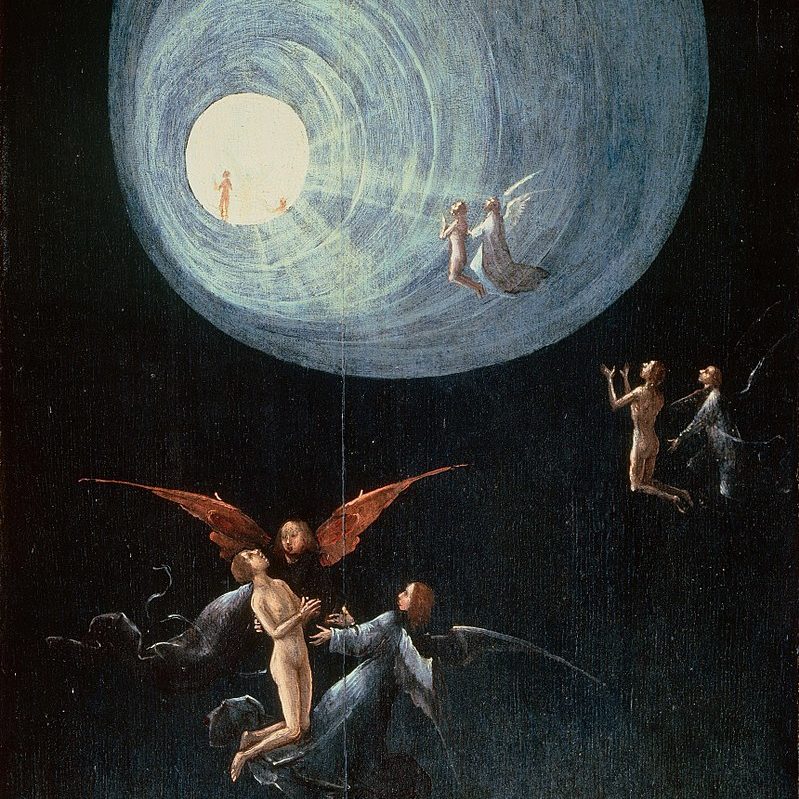
The Transition
These beautiful lines written by the sixteenth century English poet John Donne in his poem “Hymn to God, My God”, awaken deep reflection on the moment of transition when we move from this dimension into another:
Since I am coming to that holy roome
Where, with thy Quire of Saints, for evermore
I shall be made thy music; as I come
I tune the instrument here at the door,
And what I must doe then, think here before.
How do we tune the instrument of our being to the music of the cosmos? Even the act of reflecting on this gentle metaphor of communion or reunion may help to quieten the turmoil of our thoughts, bring to mind what is most important to us, how we might refine our being. Too often those who are dying may find themselves intensely alone and afraid at the moment when they are in the greatest need of comfort and support. If they have been wounded in battle or involved in a car accident, they may have been rushed to hospital and the Intensive Care Unit. Doctors and nurses may be busily engaged in trying to prolong the moments of their life when, sensing the approach of death, all they want is to be able to prepare for the moment of transition and have another kindly human being sitting by them, perhaps holding their hand.
In the final days, hours and minutes of our lives, we may experience strong feelings: fear and uncertainty about what is to come, regret about things we may have done or were not able to do, bitterness at the suffering we may have endured or caused, deep sadness that we were unable to do more, that our lives have been cut short, the longing to communicate all that we were unable to say to loved ones — above all, to express the love we felt and feel for them.
It helps greatly if those feelings can be shared with someone who can spare the time to listen to us. Those who do quietly sit and listen, in empathic companionship, even when a person has lost consciousness, may become aware that just before the person dies, a deep feeling of peace and serenity pervades the room.
In The Tibetan Book of Living and Dying, Sogyal Rinpoche asks us to live our lives in awareness of this moment of death so that, when it comes, we are able to relinquish the pressing concerns of the personality and focus on reunion with the Source from which we have come. This Source, in the Tibetan tradition, as in others, is conceived of as a great light—the Clear Light of the Void.
With death approaching it is important, where possible, to resolve old problems of relationship with others, to let go of old angers, jealousies, resentments and fears, to be reconciled with people from whom we have become alienated, to speak lovingly and reassuringly to parents or children from whom we have become separated.
Whatever effort we can make in our last moments to free ourselves from the powerful emotions, regrets and concerns that may have ruled our lives, will ease our transition from one level of reality to another.